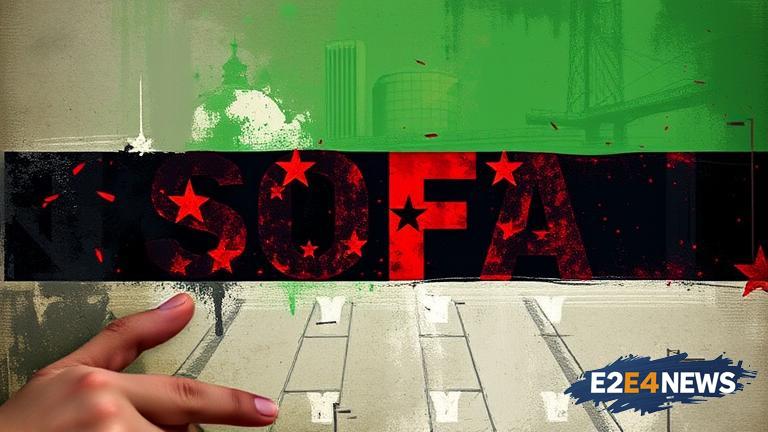The Movement for Social Justice (MSJ) has recently made a public call for the termination of the Status of Forces Agreement (SOFA), a controversial pact that has been a subject of debate in the country. The MSJ has expressed concerns that the agreement undermines the nation’s sovereignty and poses a threat to its security. The organization has argued that the SOFA agreement gives undue privileges to foreign military personnel, allowing them to operate with impunity within the country’s borders. This, according to the MSJ, is a clear violation of the country’s laws and constitution. The MSJ has also pointed out that the agreement was negotiated and signed without proper consultation with the public, and that its terms and conditions are shrouded in secrecy. The organization has demanded that the government take immediate action to terminate the agreement and renegotiate a new pact that prioritizes the country’s interests and sovereignty. The MSJ’s call for termination has been met with support from various sectors of society, including civil society organizations, trade unions, and community groups. These groups have expressed concerns that the SOFA agreement has led to an increase in human rights abuses, environmental degradation, and economic exploitation. They have also argued that the agreement has undermined the country’s ability to develop its own defense and security capabilities. The government, on the other hand, has defended the SOFA agreement, arguing that it is necessary for the country’s security and stability. However, the government’s position has been met with skepticism by many, who argue that the agreement is a relic of a bygone era and that it no longer serves the country’s interests. The controversy surrounding the SOFA agreement has sparked a national debate about the country’s foreign policy and its relationship with other nations. Many have called for a more independent and sovereign foreign policy, one that prioritizes the country’s interests and values. The MSJ’s call for termination has also highlighted the need for greater transparency and accountability in the country’s dealings with foreign governments and institutions. The organization has argued that the government must be more open and honest about its negotiations and agreements with other countries, and that the public must be consulted and involved in the decision-making process. The termination of the SOFA agreement would be a significant step towards reclaiming the country’s sovereignty and independence. It would also send a strong message to other countries that the nation is committed to upholding its values and principles. The MSJ has vowed to continue its campaign for the termination of the SOFA agreement, and to mobilize public support for a more just and equitable foreign policy. The organization has also called on other civil society groups and community organizations to join the campaign, and to work together to build a more sovereign and independent nation. The controversy surrounding the SOFA agreement is likely to continue in the coming weeks and months, with the MSJ and other groups pushing for its termination. The government, on the other hand, will likely face increasing pressure to renegotiate the agreement or to provide more transparency and accountability in its dealings with foreign governments. As the debate continues, it is clear that the SOFA agreement has become a major issue in the country’s politics, with significant implications for its sovereignty, security, and development. The MSJ’s call for termination has sparked a national conversation about the country’s place in the world, and its relationship with other nations. It has also highlighted the need for greater transparency, accountability, and public participation in the country’s foreign policy. The outcome of this debate will have significant implications for the country’s future, and will determine the course of its development and growth in the years to come. The MSJ’s campaign for the termination of the SOFA agreement is a crucial step towards building a more just and equitable society, and towards reclaiming the country’s sovereignty and independence. The organization’s efforts have already sparked a national debate, and have highlighted the need for greater transparency and accountability in the country’s dealings with foreign governments. As the campaign continues, it is likely that the MSJ will face significant challenges and obstacles, including opposition from the government and other powerful interests. However, the organization remains committed to its goal, and is determined to mobilize public support for a more sovereign and independent nation.
